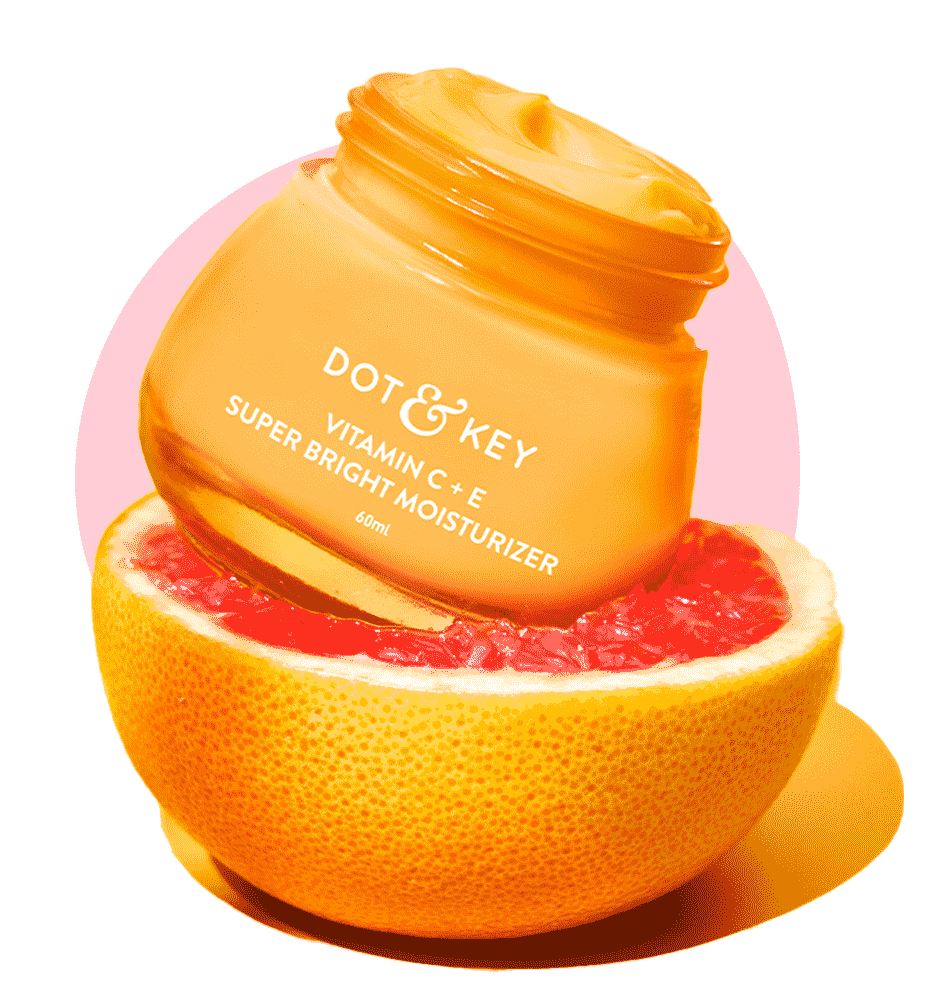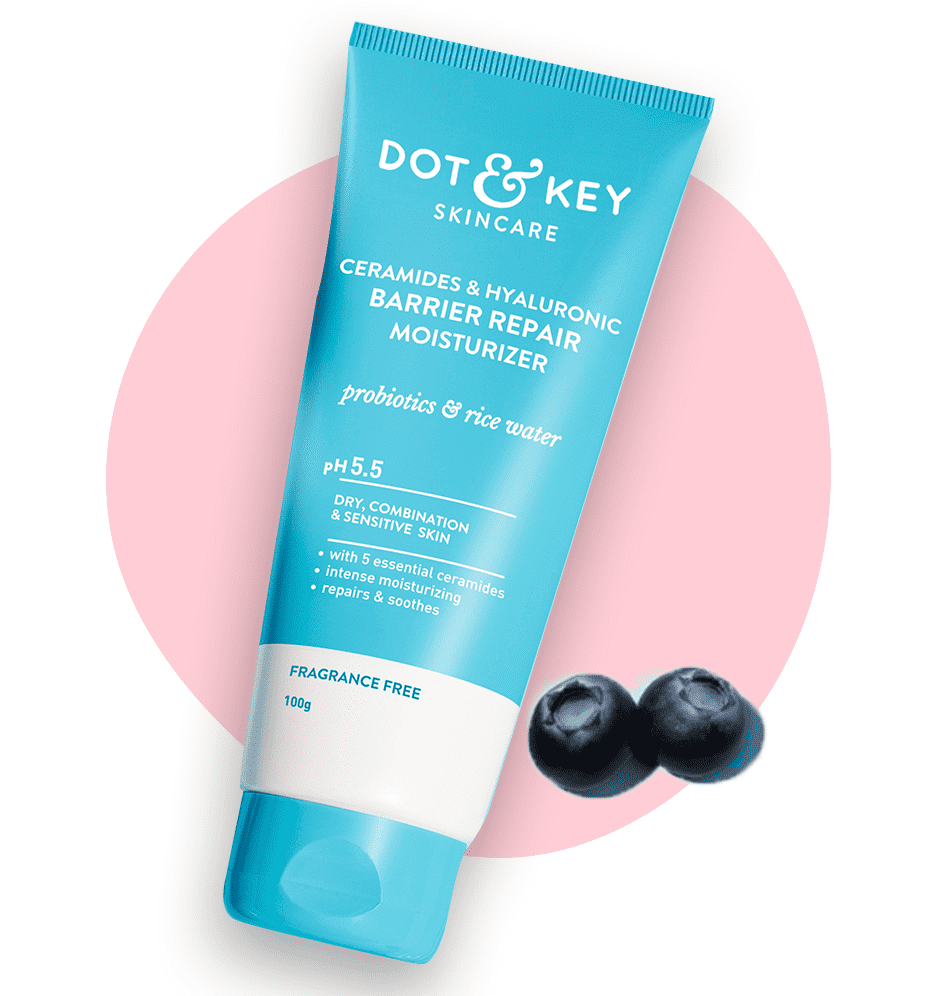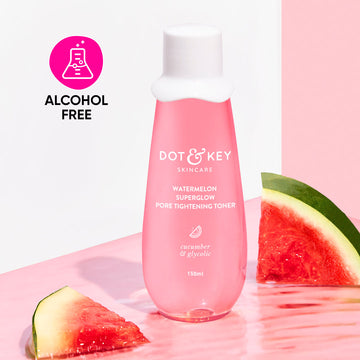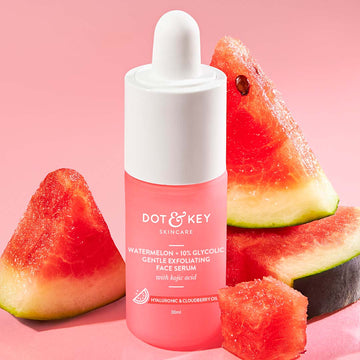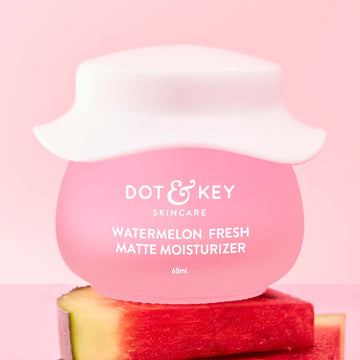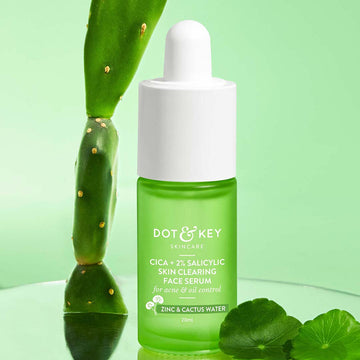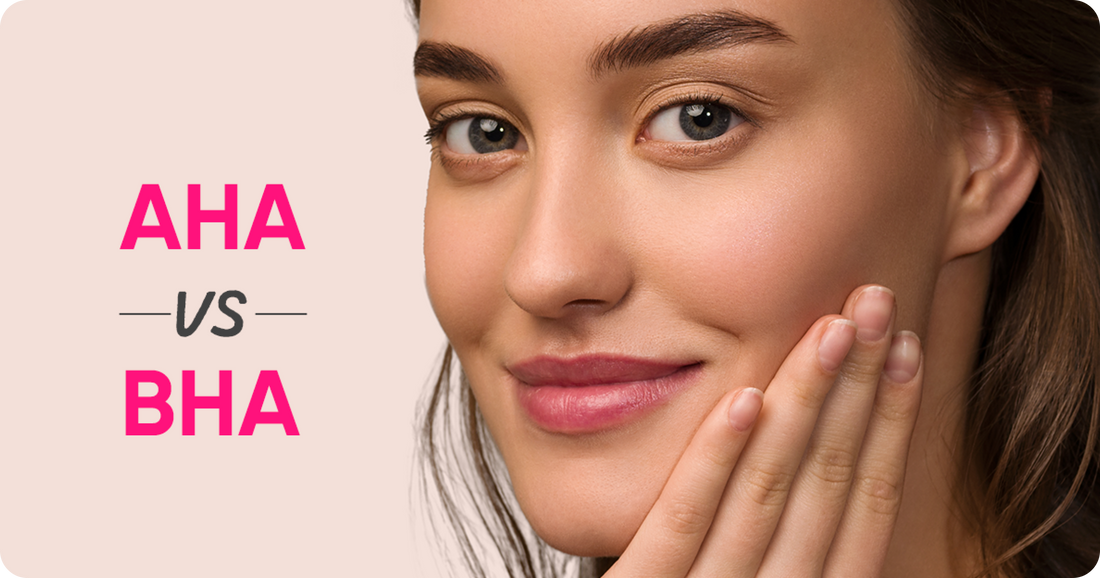
If glowing, smooth, and radiant skin is your goal, AHAs (Alpha Hydroxy Acids) and BHAs (Beta Hydroxy Acids) are your skincare superheroes. These chemical exfoliants work wonders to improve skin texture, clarity, and overall health by gently removing dead skin cells and promoting cell turnover. But here’s the catch—they work differently and cater to different skin types and concerns.
Here’s a detailed comparison to help you decide which one is best for your skincare routine.
What are AHAs?
Alpha Hydroxy Acids (AHAs), like glycolic acid and lactic acid, are water-soluble acids derived from fruits or milk. They exfoliate the skin’s surface, making them ideal for tackling concerns like dullness, uneven skin tone, and fine lines. AHAs are perfect for dry or normal skin as they help boost hydration while sloughing away dead skin cells.
Key Features of AHAs:
- Purpose: Exfoliate the skin’s surface, improve texture, and boost radiance.
- Best For: Normal to dry skin types or those with dull, uneven skin tone.
-
Common Types of AHAs:
- Glycolic Acid: Derived from sugarcane, penetrates deeply for anti-ageing benefits.
- Lactic Acid: Derived from milk, gentler and hydrating.
- Mandelic Acid: Derived from almonds, suitable for sensitive skin.
-
Benefits:
- Reduces dullness and uneven texture.
- Smooths fine lines and wrinkles.
- Fades hyperpigmentation and dark spots.
What are BHAs?
Beta Hydroxy Acids (BHAs), such as salicylic acid, are oil-soluble, which means they can penetrate deeper into pores to clear out excess sebum and reduce acne. BHAs are best for oily and acne-prone skin, making them a saviour, especially during humid Indian summers when clogged pores and breakouts are common.
Key Features of BHAs:
- Purpose: Exfoliate inside pores, reduce oiliness, and treat acne.
- Best For: Oily and acne-prone skin or those with blackheads and clogged pores.
-
Common Types of BHAs:
- Salicylic Acid: Derived from willow bark, the most commonly used BHA.
-
Benefits:
- Unclogs pores and reduces blackheads.
- Controls excess oil production.
- Calms inflammation and redness.
How They Compare
| Feature | AHA (Alpha Hydroxy Acid) | BHA (Beta Hydroxy Acid) |
|---|---|---|
| Solubility | Water-soluble, works on the skin’s surface. | Oil-soluble, penetrates deep into pores. |
| Skin Type | Normal to dry skin, sensitive skin with proper formulation. | Oily, acne-prone, or combination skin. |
| Exfoliation Level | Surface-level exfoliation. | Deeper exfoliation inside pores. |
| Primary Benefits | Brightens skin, smooths fine lines, and fades pigmentation. | Reduces oil, unclogs pores, and treats acne. |
| Common Concerns Addressed | Dullness, rough texture, ageing, hyperpigmentation. | Acne, blackheads, oily skin, inflammation. |
| Sensitivity Potential | Can be irritating; choose gentler options for sensitive skin. | Gentler on the skin but may cause dryness with overuse. |
| Frequency of Use | Start 2-3 times per week, depending on skin tolerance. | Start 2-3 times per week, adjust as needed. |
When to Use AHA
Use AHAs if you want to:
- Improve skin texture and brightness.
- Reduce the appearance of fine lines and wrinkles.
- Fade dark spots, sun damage, or hyperpigmentation.
- Hydrate dry or normal skin.
How to Use:
- Apply an AHA product (toner, serum, or peel) to clean, dry skin at night.
- Always follow with sunscreen during the day, as AHAs can increase sun sensitivity.
When to Use BHA
Use BHAs if you want to:
- Treat blackheads, whiteheads, or acne.
- Control excess oil production.
- Unclog and clean out pores.
- Reduce inflammation and redness in oily or acne-prone skin.
How to Use:
- Apply a BHA product (toner, serum, or spot treatment) to clean the skin after cleansing.
- Start with lower concentrations and increase usage gradually.
Can You Use AHA and BHA Together?
Yes, you can use AHAs and BHAs together, but proceed with caution to avoid over-exfoliation. Options include:
- Alternating Use: Use AHAs one night and BHAs the next.
- Layering: Use BHA first (to unclog pores) and follow with AHA (to exfoliate the surface).
Tip: If combining, start with lower concentrations and monitor your skin for irritation.
Who Should Use Both?
- Combination Skin: Use BHA on oily areas (like the T-zone) and AHA on dry or dull areas.
- Ageing and Acne-Prone Skin: AHAs help with fine lines and texture, while BHAs address acne and clogged pores.
Common Mistakes to Avoid
-
Skipping Sunscreen:
Both AHAs and BHAs can increase sun sensitivity, so sunscreen is essential. -
Over-Exfoliating:
Using too many exfoliants can irritate and damage your skin barrier. -
Mixing with Incompatible Ingredients:
Avoid combining AHAs/BHAs with b retinoids or vitamin C unless recommended by a dermatologist.
Conclusion
Both AHAs and BHAs are excellent exfoliants, but they cater to different skin needs. Use AHA for surface exfoliation, brightening, and anti-ageing, and BHA for deeper pore cleaning and acne control. For the best results, tailor your choice to your skin type and concerns or consider combining them with caution for a comprehensive skincare routine.
FAQs About AHA and BHA
1. Can I Use AHA/BHA Every Day?
No, overuse can irritate the skin. Start with 2-3 times a week and gradually increase as your skin builds tolerance.
2. Should I Use AHA/BHA in the Morning or Night?
Use them at night to avoid sun sensitivity. Always apply sunscreen during the day when using chemical exfoliants.
3. Which is Better for Acne?
BHAs are better for acne as they penetrate pores to unclog and reduce oil, while AHAs work more on the surface.








